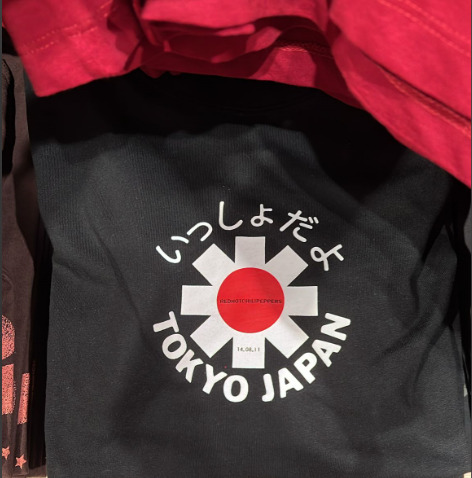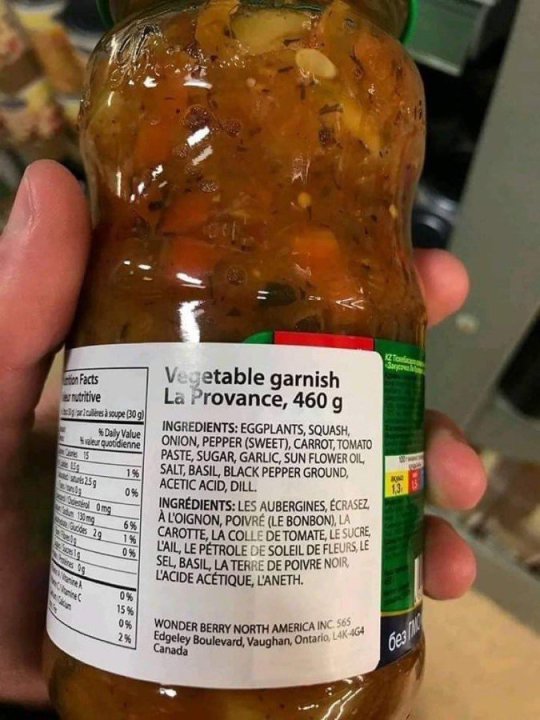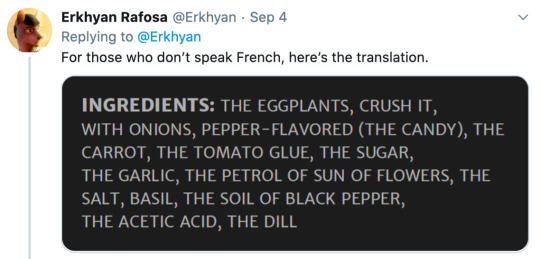#language translation
Explore tagged Tumblr posts
Text
I've finished my Dragon Age elvish/elven/elvhen/el'vhen dictionary. And 99% of it is posted. I just need to clean up the primer and post that.
I have a linguistics minor and broke el'vhen down into its component parts. It started as just a list for me, but took on a life of its own.
Anyway. Hopefully, this will give us more words and tools to work with.
#dragon age#dragon age inquisition#dragonage#dragon age 2#da2#dao#dragon age origins#fan fic#fanfic#language translation#dragon age language translation#ao3fic#ao3 feed#ao3feed#ao3#ao3 fanfic#dragon age elvish#dragon age elvhen
535 notes
·
View notes
Text
Trying to translate a scene (pt 2)...
... I'm still on the warp pipe scene in the Japanese dub of The Super Mario Bros Movie: X

This is the line in English: "I'm telling you! Nothing can hurt us as long as we're together!" In Japanese, I'm hearing the line as this: "Daijoubu! Bokura taru de(?) do ba, nantoka naru sa!"
I know "Daijoubu" means "It's okay." (It literally translates to "okay," but in this context I believe it's a reassurance.)
I know "nantoka naru sa" means "it'll be alright in the end."
But I'm confused about that part in the middle. Bokura means "we." I think "taru" means enough/sufficient? Though it might have a different meaning in this context. Or I could be mishearing. (See update for corrections!) "Ba" is a conditional form. (If A, then B.) So is the quote: "It's okay! So long as we're enough, it'll be alright in the end"? That doesn't seem right. I'm almost certain that the "taru" I hear is something different, but I can't for the life of me figure out what the word actually is.
(Tagging @theybibsxi and @hug-monster for their expertise 🙏 )
Update:
@dooxliss suggested that the "taru" I'm hearing is actually "futari," which means "two people"/"a pair."
"Daijoubu! Bokura futari do ba, nantoka naru sa!"
If that's the case, the quote is actually "It's okay! So long as we're a pair, it'll be alright in the end," which makes a lot more sense.
Still, any sort of extra confirmation/correction is appreciated 👍
#looking up the Japanese word for ''together'' didn't give me anything similar to what I'm hearing#doggone synonyms#japanese#language translation#japanese translation#translation help#Mario Movie#Super Mario bros#super mario brothers
71 notes
·
View notes
Text
Current Project
currently working autism project: translating D&D into latin
Long story short, I finished that and decided to work on an even larger, autismer project.
Translate the player's handbook. It's not going to be quick or easy, but hopefully it will be good.
#latin language#latin lover#language translation#translation#special interest#dungeons and dragons#player's handbook#autism
7 notes
·
View notes
Text


Confusing moment when I try to figure out what it means.
Saw this cool t-shirt at the mall. I know the いっしょだよ is pronounced as "Isshoda yo". But I don't know what it means, so I use google translate app. It says "When is it". I get more confused as I know "When is it" is "Itsudesu ka" いつですか which is different. Turns out いっしょだよ "Isshoda yo" means "We're together."
I need a more accurate translate app than Google, while on the go. 😂
13 notes
·
View notes
Text
korean speakers!!
this is such a random request, but can anyone who's fluent in korean translate this song for me? i've been searching high and low for a few years now whenever i'm reminded of it, but i don't believe she has it published anywhere since it's an original... 😞
youtube
#language help#korean language#korean#kpop star#kpop#language#translation#translation help#song translation#language translation#Youtube
2 notes
·
View notes
Text
Understanding Language Translation and Translation Work at Speaknahuatl: Spanish, English and Nahuatl
What is language translation?
Language translation is the act of changing written words from one language to another language using different computer-assisted tools like translation memory. Translators have the ability to examine text or other written documents to make sure it is an accurate translation. Translators focus on written works like blogs, news articles, websites, etc.
What is language translation?
Language translation is like transforming words on paper, website, medical document, etc. from one language to another. For example, let’s say a Spanish speaker received a medical letter in English. This is where a translator can help by changing all the words to Spanish. This work may involve using software, cross-referencing other documents and referencing multiple dictionaries to make sure the translation is correct.
What are our mother tongues and dialects, as well as those we've acquired through learning?
Nahuatl (Multidialectal including Huasteca, Classical, Central and Western)
Spanish (Dialect: Mexican, Northwestern/Bajacaliforniense)
English (Dialect: American, California)
Mexican Spanglish (Borderland: Southern California/Northern Baja)
What languages do we translate?
Nahuatl
Spanish
English
Mexican Spanglish
What is the rate per word?
The cost is 30 cents (USD) for each word.
How can you request a written language translation?
Send us an email to [[email protected]] with following:
1) What language(s) do you want us to translate this text to?
2) Provide us with the word(s), sentence(s) or paragraph(s) you'd like us to translate
3) Due date: when do you require this translation to be completed?
What happens after this?
4) Donation options will be provided via email
5) Once donation is received, the translation will be sent by the due date in PDF format
What We Do
We are a collective of language workers: learners and teachers. We work in language revitalization projects and offer trilingual translation services: Nahuatl, English & Spanish. To stay up-to-date with our offerings, please go here: https://linktr.ee/speaknahuatl.
Form Version: https://tiny.one/tlajtolkuepa
IG Version: https://www.instagram.com/p/C5B4QhPBynT
2 notes
·
View notes
Text
How Professional Subtitling Services Improve Multilingual Video Content
#Professional Subtitling#Language Translation#Braahmam International#multilingual#artificial intelligence
2 notes
·
View notes
Text
2 notes
·
View notes
Text
youtube
Unlocking Vietnamese: This international expansion comes with the need for seamless communication, which often requires effective translation services. #translation #service #language #transcription #multilingualservice
2 notes
·
View notes
Photo
"Le pétrole" Immediately reminded me of the entirety of 3 years of spanish majors/minors/level I- III students shaming whoever in the language building that was responsible for translating the room door names for using "shops" instead of "storage"/"closets" for "stores". It was rectified immediately.



i’m “the petrol of sun of flowers”
89K notes
·
View notes
Text

Republicans deliberately use coded language to trick people to vote for them and radicalize their group. Many don't even realize they're radicalized or what they're saying is even racist. This is why they think the Left is "over reacting" because the either know they're using coded language and don't care, or they don't know anything at all.
#us politics#donald trump#elon musk#project 2025#coded language#decoding the right#trump administration#president trump#trump presidency#trump project 2025#fight project 2025#fight against project 2025#translating#fuck republicans#republicans are evil#republican party
46K notes
·
View notes
Text
Trying to translate a scene...
...or... at least a few simple sentences of a scene, specifically when Mario and Luigi are in the warp pipe in the Japanese dub of The Super Mario Bros Movie: X

In the English version, the exchange goes like this: Mario: "It's all going to be okay!" Luigi: "How is this going to be okay!?"
But in Japanese, it goes something like this (assuming I didn't mishear anything):
Mario: "Luigi! Shinpai sero na!" Luigi: "Niisan! Shinpai dayo!"
I know Japanese sentence structure is subject-object-verb. I know "shinpai" means worry, concern, or anxiety. "Na" at the end of a sentence can mean a lot of things: seeking confirmation, a rhetorical statement, or an imperative sentence (i.e a command). My guess is that it's seeking confirmation. Luigi ends his response with "dayo," which is often a pushier, more informal version of "desu," which I think is something of an english-equivalent of "to be"? (don't quote me on this I could be completely wrong.)
I don't know what "sero" means. If I'm hearing correct, and my source is correct, it's apparently either an auxiliary verb indicating a causative, an auxiliary verb indicating that someone has permission to do something, or an honorific for others' actions.
With all this in mind, this is my current take on the translation... Mario: "Luigi! You're worried!" Luigi: "Big Bro! This is worrying!!!" (see edit for correction!)
But there's a huge chance I got something wrong. Anyone who actually knows Japanese, please please please feel free to correct me!
EDIT: I got feedback from someone who's Japanese!
Big thanks to @hug-monster for the help! Mario doesn't say "Shinpai sero na!" he says "Shinpai suru na." Suru means "do." With this in mind, "na" in this context is an informal way of saying "not." So, put together, what Mario is actually saying is "Luigi! Don't worry!"
In this context, a more accurate translation of Luigi's response is "Bro! I am worried!"
#Hope you're okay with being tagged! I'm just very happy and wanted to credit you properly#just let me know if you want me to remove it#japanese#language translation#japanese translation#translation help#Mario Movie#Super Mario bros#super mario brothers
63 notes
·
View notes
Text

#language localization#language translation#document translation#translation services#kumpenny solutions#mumbai#legal translation services#certificatetranslation
0 notes
Text
How Hebrew Translation Services Can Help with International Marketing
In the fast-paced world of global business, effective communication is everything. If you're expanding into Israeli markets or aiming to connect with Hebrew-speaking audiences worldwide, Hebrew translation services can be a game-changer for your international marketing strategy.
From website localization to product packaging and social media campaigns, professional Hebrew translation ensures your brand speaks directly—and meaningfully—to your target audience. Here’s how working with skilled translators can elevate your international marketing success.
1. Connecting Authentically with Hebrew-Speaking Audiences
Israel is a tech-savvy, highly educated market with a strong sense of national identity—and language is a huge part of that identity. To make a real impact, your marketing messages need to resonate on a cultural and emotional level.
Professional Hebrew translators help you:
Craft campaigns that reflect local humor, tone, and values
Avoid awkward or inaccurate phrasing that could turn off consumers
Adapt messaging to fit the nuances of Israeli culture and slang
In short, translation isn’t just about changing words—it’s about building trust and connection.
2. Localizing Your Website and Digital Content
Your website is often the first touchpoint with potential customers. If it’s not available in Hebrew—or if it’s poorly translated—it can quickly create a barrier.
With expert Hebrew localization, you can:
Translate site content, navigation menus, and CTAs for maximum clarity
Optimize for Hebrew-language SEO, so your brand shows up in local searches
Ensure visuals, dates, and currencies are all localized appropriately
A localized website increases engagement, lowers bounce rates, and boosts conversion—especially in competitive industries like tech, tourism, and e-commerce.
3. Expanding into Israel’s Thriving Tech and Consumer Markets
Israel is often called the “Startup Nation” for a reason. With a booming tech industry and a digitally connected population, it presents enormous opportunity for global brands.
Whether you’re marketing a SaaS product, lifestyle brand, or mobile app, translating your content into Hebrew makes your offerings more accessible and appealing.
Professional translators can assist with:
App localization and UX copy
Email campaigns and digital ads
Investor decks and B2B communications
Being present in Hebrew shows you’re serious about entering the market—and that you respect your audience enough to meet them in their language.
4. Ensuring Accuracy in Legal and Regulatory Messaging
International marketing often includes more than just promotional content. You may need to translate terms of service, privacy policies, product disclaimers, or compliance documents—and accuracy here is non-negotiable.
Certified Hebrew translators ensure that:
Your brand is legally protected and compliant with local regulations
Customers clearly understand their rights and responsibilities
There are no costly misunderstandings due to poor translation
This kind of precision adds credibility and protects your reputation across borders.
5. Standing Out in a Competitive Global Market
Global consumers have more choices than ever—and they gravitate toward brands that feel familiar and personalized. By offering high-quality, culturally fluent content in Hebrew, you demonstrate that you’ve done your homework—and that you value the Israeli and Jewish diaspora markets.
It also positions your brand as inclusive, globally minded, and detail-oriented—qualities that matter in today’s connected economy.
Final Thoughts
Investing in Hebrew translation services is more than just ticking a box—it’s a strategic move to grow your brand, deepen customer relationships, and compete globally. With the right translation partner, you can craft messages that feel local, sound authentic, and drive results.
Hebrew Translation Services
#Hebrew Translation Services#Language Translation#Translation Services#language translation services
0 notes
Text
#latin langblr#latin language#classical latin#latin lover#dungeons and dragons#dnd#d&d#translation#language#language translation
0 notes
Text
LANGUAGE INSIGHT: TEACHING VS. INTERPRETING VS. TRANSLATION
Language is a powerful tool that holds the potential to connect people from different corners of the world. Understanding and mastering a language opens up new avenues of communication and cultural understanding. Amongst the various facets of language, teaching, interpreting, and translation are three crucial aspects that serve distinct but interconnected roles.
What is Language Teaching?
Language teaching is the process of enabling learners to acquire a new language. It involves building knowledge of various aspects of the language, such as grammar, cultural nuances, listening, writing, reading, and speaking skills. Picture yourself on a mission to learn a new language - be it your native tongue, a language you are reclaiming, or a foreign one. A language teacher is your guide on this journey, helping you to learn everything about the language: speaking, understanding, writing, pronunciation and even the cultural aspects intertwined with the language.
What is Language Interpreting?
Language interpreting is a real-time translation process that involves listening to something in one language and orally translating it into another. This form of translation can be witnessed at public events, news channels, courthouses, and even in the medical field where interpreters assist in overcoming language barriers. Essentially, interpreting is the act of transforming spoken words or signs from one language to another to ensure that all parties involved in the communication process understand each other.
What is Language Translation?
Language translation is the process of changing written words from one language to another. This can involve use of different computer-assisted tools like translation memory. Translators have the ability to examine text or other written documents to ensure the translation is accurate. This art of transformation is typically focused on written works like blogs, news articles, websites, medical documents, etc. For instance, if a Spanish speaker received a medical letter in English, a translator can help by changing all the words to Spanish.
Recognizing the Differences
Teaching, interpreting and translating each play a distinct role in the realm of language. Teaching empowers individuals with the ability to communicate in new languages, interpreting facilitates real-time connections between people speaking different languages, and translating preserves the written legacy of a language by making written documents accessible across language barriers. Acknowledging these differences unveils the diverse facets of language mastery.
What We Do at SpeakNahuatl.com
We are a collective of language workers, comprising of learners and teachers. Our work revolves around language revitalization projects and we offer trilingual translation services in Nahuatl, English & Spanish. However, we do not offer interpreting services.
Interpreting Services List
For those seeking interpreting services, here are a few recommendations:
My Cielo Interpreter Project
California Interpreting Services - Nahuatl Interpreter
Collective of Indigenous Interpreters of Oregon
1 note
·
View note